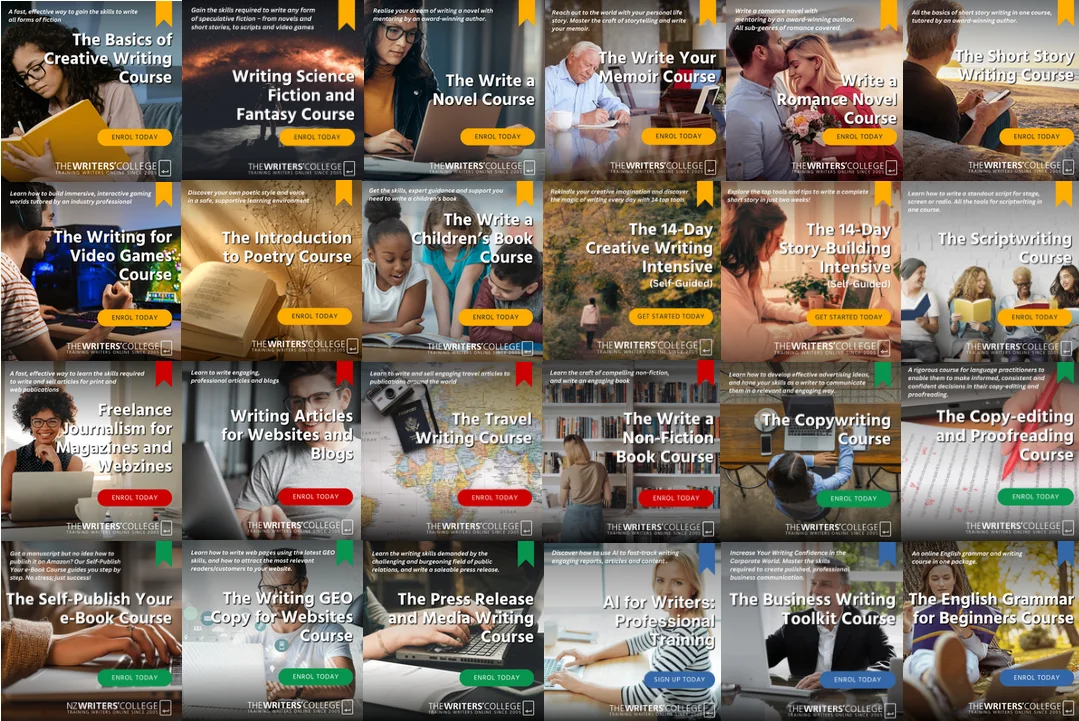The sound of a page turning used to be magic, but for many children and young adults today, that sound is fading. Traditional reading – linear, one-way, fixed – is in decline. Yet out of that silence, something electrifying is rising: interactive fiction. This medium doesn’t ask readers simply to watch a story unfold, but to step inside it, tug on its threads, make choices and, in doing so, co-create something powerful.
For writers – especially those attuned to language, character and plot – this is the moment to explore interactive fiction.
Reading rates are falling. Engagement needs reinventing.
The data is sobering:
- In the UK, just 1 in 3 (32.7%) of children and young people aged 8–18 years say they enjoy reading in their free time – the lowest level since the National Literacy Trust began its annual literacy survey in 2005 (National Literacy Trust, 2025).
- In that same age group, only 20% read daily in their free time, marking another historic drop of 7.5% points from 2025 (ReadingZone, 2024).
- The decline was most pronounced among boys aged 11–16 years, whereas the figures for girls remained stable (Creamer, 2025).
- By age 11, only a quarter of children still say they ‘love’ reading, down from a third at age 7 (BookTrust, 2024).
This isn’t a temporary blip – it’s a cultural shift. Stories still matter, but they’re competing with TikTok, YouTube, Netflix and games. And yet, herein lies the opening: interactive fiction meets young people exactly where they already are – on screens and in digital spaces – while rekindling the narrative pleasure of reading.
Recent research supports this. A 2025 study of 2,400 participants found that audiences aged 18–27 reported the highest enjoyment and awareness of interactive narrative techniques, with many describing interactivity as the main reason for their engagement (Errey et al., 2025). Authors need to move beyond one-size-fits-all designs. When writing for younger audiences, they should embrace bold interactivity and prioritise aesthetics (Errey, 2025).
In classrooms, interactive fiction has boosted literacy, creativity, and systems thinking. One systematic review found that 68% of youth preferred interactive fiction over traditional texts, saying it motivated them to read more (Wright & Weible, 2024).
Another study by Fenici and Mosca (2024) proposed that educational activities incorporating branching narratives and gamebooks are a suitable tool to promote social change and sustainability.
In other words: reading itself isn’t dying. It’s rapidly shifting form.
What is interactive fiction – and why is it different?
Interactive fiction (IF) isn’t just ‘choose your own adventure’. It encompasses a wide spectrum:
- Parser-based adventures like Colossal Cave Adventure (1976) or Zork (1980), which require players to type commands.
- Choice-based narratives with branching outcomes shaped by decisions, as seen in Twine stories and Choice of Games titles.
- Visual novels with strong character-driven plots and graphics, such as Doki Doki Literature Club or the science fiction game Steins;Gate.
- Hybrid forms that blend text with voice, animation, virtual reality (VR) or game mechanics (Disco Elysium, Detroit: Become Human).
What unites them is non-linearity: the reader shapes the plot.
Distinctive features of IF include:
- second-person narration (‘You step into the room…’) – rare in traditional fiction, yet a powerful tool for immersion.
- branching paths, alternate endings and parallel arcs. Writing IF often requires ‘two or three books’ worth of words to give every branch weight (The Interactive Fiction Community Forum, 2025).
- rewards for exploration. Readers replay, test boundaries and treat reading as play.
For writers, the challenge lies in balancing freedom with coherence. Yet tools like Twine, ChoiceScript, and Inkle make the tech approachable. You don’t need to code like a developer; you need only the skills you already have: empathy, structure, character, plot and voice.
The canon of interactive fiction: classics and award-winners
To understand IF’s power, it helps to look at its most influential and best-selling works. These are not obscure experiments; they’re cultural touchstones and commercial successes.
Classics and foundations
- Zork (1980) – defined as parser IF, this established conventions still in use today.
- Photopia (Adam Cadre, 1998) – a minimalist yet emotionally devastating story that proved IF could be literary art.
- Galatea (Emily Short, 2000) – a landmark in non-player character (NPC) interaction, where conversation itself is the ‘game.’
- Counterfeit Monkey (Emily Short, 2012) – brilliant wordplay mechanics showcase IF’s puzzle-rich potential.
Commercial breakthroughs
- 80 Days (Inkle, 2014) – a steampunk-inspired reimagining of Jules Verne’s novel Around the World in Eighty Days. Writer Meg Jayanth won a Writers’ Guild of Great Britain award for her work (Dudley, 2019), and the game received four BAFTA nominations in 2015: Best British Game, Best Story, Best Mobile Game and Game Innovation (Stuart, 2015).
- The Stanley Parable (Galactic Cafe, 2013) – a surreal, meta-narrative, first-person experience exploring existentialism and predestination. It sold more than 100,000 copies within three days of release (Matulef, 2013).
- Choice of Games Series (2009–present) – a sustainable publishing model with loyal readers and paid opportunities for emerging writers.
Critically acclaimed standouts
- Depression Quest (Zoë Quinn, 2013) – a searing portrayal of depression that reached mainstream media and was praised for its educational value.
- A Dark Room (Michael Townsend, 2013) – an offbeat, open-source text-based role-playing game (RPG) initially developed for browsers and later released on mobile.
- Disco Elysium (ZA/UM, 2019) – a revolutionary RPG that won the BAFTA awards for Best Debut Game, Best Narrative and Best Music in 2020 (Stuart, 2020).
Contemporary award-winners (2020–2025)
- Detroit: Become Human (Quantic Dream, 2018; ongoing acclaim) – a deeply branching sci-fi drama that has sold over 11 million copies worldwide.
- Life Is Strange (Dontnod Entertainment, 2015; remastered 2021) – a time-bending coming-of-age saga with a passionate global fanbase.
- The Walking Dead (Telltale Games, 2012–2019) – this well-known series has won more than 90 Game of the Year awards.
- The Wolf Among Us (Telltale Games, 2013; sequel incoming) – a noir fairy-tale thriller beloved by both critics and fans.
- Firewatch (Campo Santo, 2016) – the winner of the 2017 BAFTA awards for both Best Performer and Best Debut Game (Webber & Simoens, 2017).
- Oxenfree (Night School Studio, 2016) – an acclaimed indie hit blending supernatural mystery, puzzle-solving and a unique dialogue system.
- Until Dawn (Supermassive Games, 2015) – a cinematic survival-horror game that features a branching narrative with significant consequences.
These works prove that IF is not niche. It wins awards, generates revenue, inspires fandoms and shapes mainstream game design.
Why writers should care
Interactive fiction merges the emotional depth of literature with the participatory thrill of gaming. For writers, this means:
- Greater intimacy – the reader isn’t just a spectator; they inhabit the protagonist.
- Replayability – readers can explore different branches, deepening engagement.
- Agency and consequence – every choice is a promise or a threat that makes stories unforgettable.
- New markets – while traditional publishing feels overcrowded, IF publishers are actively scouting for fresh voices.

The market for interactive fiction
The IF market is diverse, spanning multiple niches and industries. Writers can find opportunities in:
- Commercial publishing: Choice of Games, Hosted Games and Heart’s Choice pay royalties and have dedicated readerships.
- Mobile platforms: apps such as Episode and Chapters generate revenue through in-app purchases; successful stories can earn significant income.
- Indie publishing: platforms such as itch.io, Steam and even personal websites allow full creative control and higher revenue cuts.
- Literary recognition: competitions like IFComp and Spring Thing build reputations and communities.
- Emerging formats: interactive audiobooks, Alexa skills and VR storyworlds.
Although most writers can’t quit their day jobs on IF earnings alone just yet, the field offers visibility, supplementary income, and invaluable craft skills that transfer to screenwriting, gaming and publishing.
Traditional books have evolved from clay tablets – dating as early as 2144 BCE, 4,200 years ago (Tucker, 2021) – to immersive, interactive digital experiences. In that light, interactive fiction is still in its infancy. This gives today’s writers a rare chance to get in early, shape the future of storytelling, and capture a youth market hungry for new ways to engage.
Getting started: tools, communities and first steps
Good news: you don’t need to reinvent the wheel. Tools and communities already exist to support you.
Beginner-friendly tools
- Twine – free, visual, drag-and-drop functions. Ideal for branching choice stories.
- Ink/Ink Studio – the scripting language behind Inkle’s award-winning games such as 80 Days.
- ChoiceScript – the engine used by Choice of Games, comes with a publishing ecosystem.
- Inklewriter – browser-based and perfect for dipping your toes in.
For advanced experimenters
- Inform 7 – natural-language coding for parser-based games.
- TADS 3 – supports complex, richly detailed parser worlds.
- Ren’Py – designed for visual novels, with strong community support.
Communities and showcases
- IFDB – the definitive interactive fiction database.
- Choice of Games Forum – peer review, game jams, and feedback.
- Spring Thing and IFComp – annual competitions spotlighting new works.
- Twitch and YouTube – streamer communities that have helped games like Until Dawn go viral.
The future: where IF is headed
Looking ahead, IF is poised for explosive growth:
- AI-assisted storytelling – not replacing creativity, but supporting it: generating branches, testing coherence and suggesting variations.
- VR and AR immersion – walking through story worlds and making physical choices.
- Hybrid forms – text blending with video, podcasts and augmented print books.
- Education and therapy – IF already boosts literacy; its potential in empathy training, mental health and language learning is enormous.
- Personalised narratives – analytics can shape experiences to readers’ preferences in real time.
Why now is the time
Interactive fiction bridges what many young people are already doing: making choices during gaming, exploring on screens, and participating in narratives on TikTok or YouTube. It fuses the artistry of literature with the interactivity of gaming.
For writers, this is both a challenge and a liberation. Instead of worrying about sales charts in saturated markets, you can pioneer in a growing, less crowded space.
Let your story unfold in many directions
If you are creative, care about stories, and want your readers not just transported but activated – interactive fiction is calling you.
Don’t wait until you ‘learn to code’. Start with the story. Sketch branches. Imagine outcomes. Ask yourself: ‘What options does my protagonist have here? What consequences may ripple out in unexpected ways?’
Storytelling and literature are not dying – they are evolving. Writers who embrace interactive fiction will not just survive that evolution; they will lead it.
Ready to write your own interactive worlds?
Our Writing for Video Games Course at The Writers’ College will equip you with the skills to craft branching storylines, immersive dialogue and compelling player choices.
Whether you dream of creating the next award-winning interactive novel or writing narrative arcs for games, this course will give you the tools, guidance, and industry insights to help you make it happen.
Step into the future of storytelling – enrol today.
Feedback on the Writing for Video Games Course
‘It was an amazing experience. It was fun and very inspiring as well as very knowledgeable.
Paul is a very patient and kind tutor. I would not have made it this far without his support. He is an excellent tutor and is always on hand to assist and help should I have had any issues.’
~ Jade Yeld, Writing for Video Games Course
‘I found the course material very engaging, clear and interesting to read. Both tutors were fantastic, providing clear instruction, helpful tips and insights. I’ve already signed up for another course!’
~Maya Breen, Short Story Writing Course and Writing for Video Games Course, Auckland
‘My tutor was amazing! Paul really inspired me to look more into my writing and dive deeper into the creativity I already had. Straight-to-the-point education and flexible learning.’
~Jade Garrett, Writing for Video Games Course
‘I had a great experience with my tutor. He was very friendly and helped me improve my writing skills and helped me when I needed help. I would definitely recommend him to anyone who wants to kickstart their studies in the game writing category.’
~Breslin Byrne, Writing for Video Games Course
‘The presentations were short and digestible, the PDF Modules were well written, and my tutor Paul was able to answer any question I had for him. Paul was great! He was quick to reply to any questions, we had a great chat on Discord about how I was getting on with the course a few modules in, and each time he provided my marking and feedback it was all clearly actionable, and I have a clear route to what I need to improve on. Overall, great guy, great work, would choose him again!’
~Christopher Woodcock, Writing for Video Games Course
‘Paul from start to finish has been phenomenal; his knowledge, kindness and positive attitude really do help inspire you to keep on excelling. To meet someone like that who shares the same passion you do and be able to learn from him was a real pleasure. Very grateful you have Paul as a tutor for the course! This course gave me such an engaging and insightful understanding into Narrative Design.’
~Chris Vella, Writing for Video Games Course
‘I wish my tutor was also teaching my Hons degree course. He has been clear and understandable, giving positive feedback and identifying where I can expand my writing. I’ve learned a lot. I feel much more confident in my writing and in applying for jobs in the games industry. It’s been the best course I’ve ever completed. Thank you for making this a positive experience of learning.’
~Desert Belgrave, Writing for Video Games Course
‘Great course for people who want to get into the field, or those who already are but could use a little structure. Paul was excellent: patient in answering questions, great at explaining things and very responsive.’
~Rosemary Lokhorst, Writing for Video Games Course
‘Great experience! Great pacing, clear instructions, fantastic feedback. Definitely recommended.’
~Roxane Dalinger, Writing for Video Games Course
See more feedback here: https://www.thewriterscollege.com/writing-for-video-games-course/
References
BookTrust. (2024, October 01). BookTrust research reveals decline in childhood reading enjoyment. https://www.booktrust.org.uk/about-us/news-updates/booktrust-research-reveals-decline-in-childhood-reading-enjoyment/
Creamer, E. (2025, June 11). Children’s reading enjoyment falls to lowest recorded level in UK. The Guardian. https://www.theguardian.com/books/2025/jun/11/children-reading-enjoyment-falls-national-literacy-trust
Dudley, D. (2019, May 28). Meg Jayanth. Gamedevheroes. https://gamedevheroes.co/amo-team/meg-jayanth/
Errey, N. (2025, August 28). Why audience age matters: The influence of audience age on engagement with interactive narrative visualization. Nightingale. https://nightingaledvs.com/why-audience-age-matters/
Errey, N., Chen, Y., Dong, Y., Nguyen, Q. V., Yuan, X., Leong, T. W., & Liang, C. J. (2025). An age-based study into interactive narrative visualization engagement. Arxiv. https://doi.org/10.48550/arXiv.2507.12734
Farber, M. (2015, April 14). Interactive fiction in the classroom. Edutopia. https://www.edutopia.org/blog/interactive-fiction-in-the-classroom-matthew-farber/
Fenici, M., & Mosca, I. (2024). Gamebooks and branching narratives in education: fostering sustainability competences to promote positive social change. Frontiers in Education, 8, Article e1335605. https://doi.org/10.3389/feduc.2023.1335605
Matulef, J. (2013, October 22). The Stanley Parable sold over 100K copies in three days. Eurogamer. https://www.eurogamer.net/the-stanley-parable-sold-over-100k-copies-in-three-days
National Literacy Trust. (2025, June 12). Children and young people’s reading in 2025: Annual literacy survey report. https://literacytrust.org.uk/research-services/research-reports/children-and-young-peoples-reading-in-2025/
ReadingZone. (2024). NLT’s 2024 annual literacy survey shows steep decline in reading enjoyment. https://www.readingzone.com/news/nlt-s-2024-annual-literacy-survey-shows-steep-decline-in-reading-enjoyment/
Stuart, K. (2015, February 10). British Academy games awards 2015 – the full nominations list. The Guardian. https://www.theguardian.com/technology/2015/feb/10/bafta-british-academy-games-awards-the-full-nominations-list
Stuart, K. (2020, April 03). Bafta games awards 2020: Outer Wilds and Disco Elysium dominate. The Guardian. https://www.theguardian.com/games/2020/apr/03/outer-wilds-disco-elysium-bafta-games-awards-2020
Tucker, N. (2021, November 22). It’s as if it was written in… clay. For 4,200 years. Library of Congress Blogs. https://blogs.loc.gov/loc/2021/11/its-as-if-it-was-written-in-clay-for-4200-years/
Webber, J. E., & Simoens, E. (2017, April 07). Baftas 2017: indie Inside wins big but Uncharted 4 takes best game. The Guardian. https://www.theguardian.com/technology/2017/apr/07/baftas-2017-indie-title-inside-wins-big-but-uncharted-4-takes-best-game
Wright, T. B., & Weible, J. L. (2024). Current attitudes on digital interactive fiction and text adventure games within learning contexts: A systematic literature review. Journal of Research in Science, Mathematics and Technology Education, 7(1) 23–51. https://jrsmte.com/article/current-attitudes-on-digital-interactive-fiction-and-text-adventure-games-within-learning-contexts-a-14313










